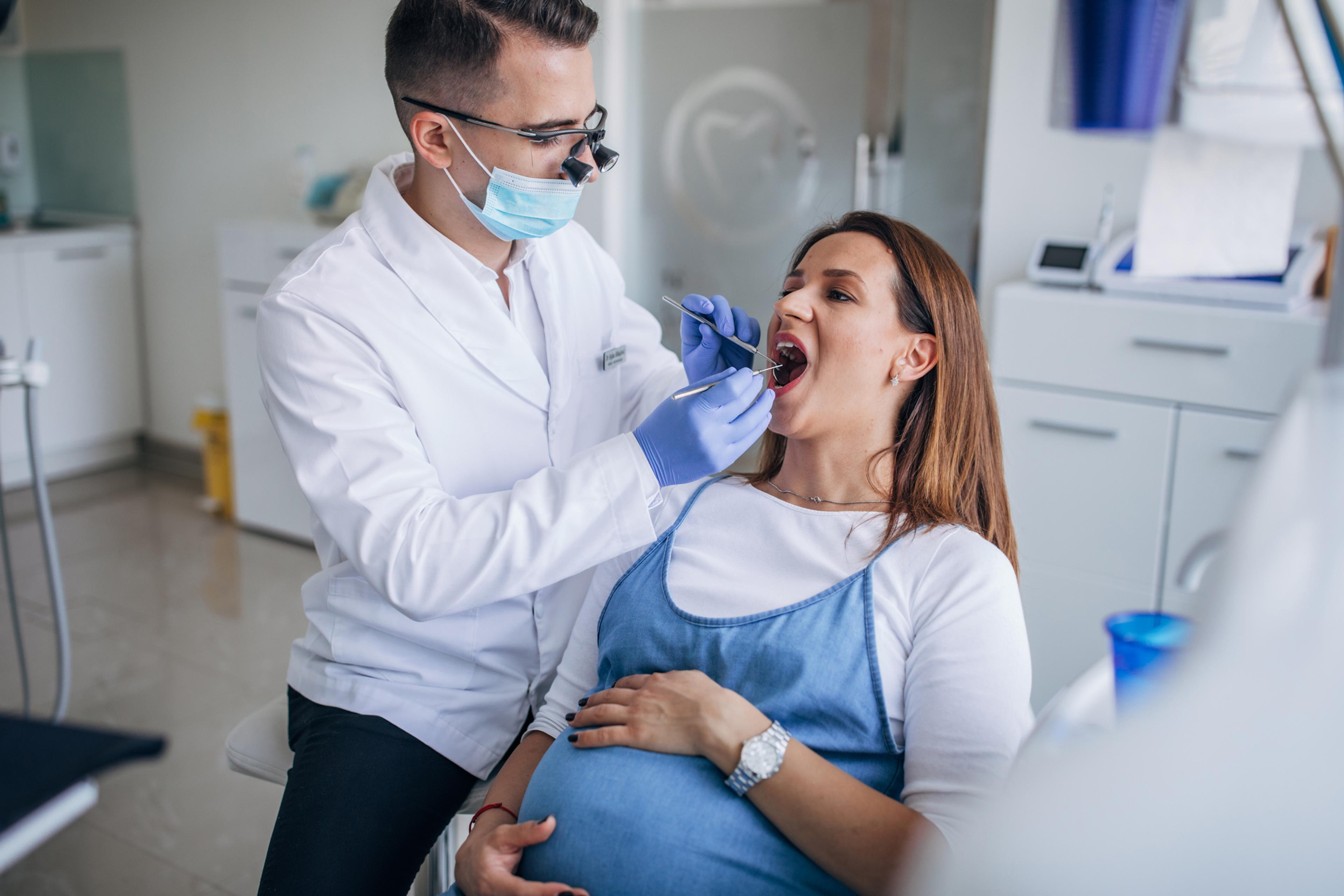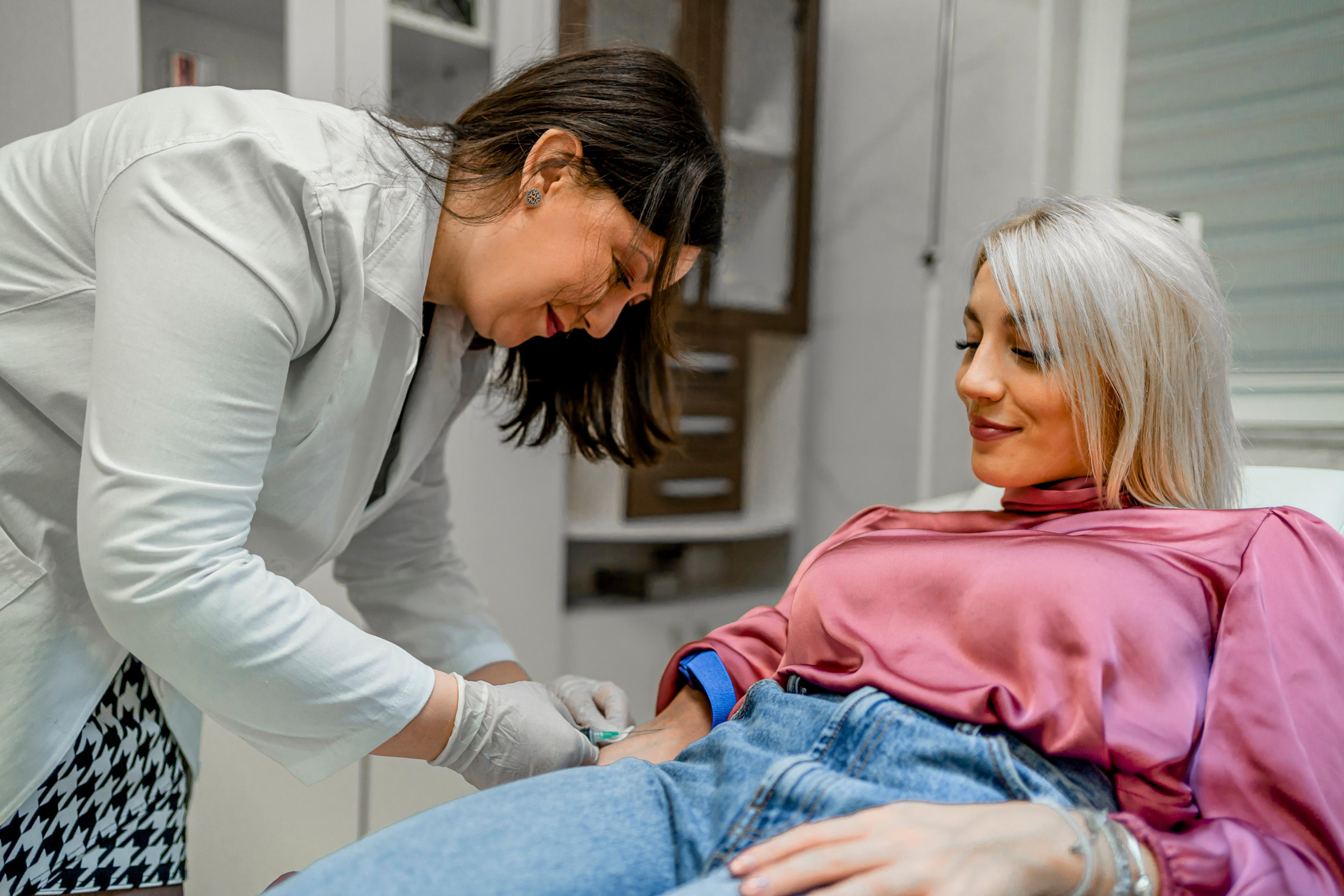The Importance of Dental Health During Pregnancy
Jake Newby
| 3 min read

Key Takeaways
- Periodontal disease – considered the most severe form of gum disease – is associated with preterm birth, preeclampsia and low birth weight.
- Pregnant women with cavity-causing bacteria during and after pregnancy could transmit these bacteria from their mouth to their baby’s mouth.
- Women can prevent periodontal disease, cavities, tooth decay and other issues by prioritizing their oral health during prenatal care.
Women may suffer from oral health problems due to the increased levels of hormones like progesterone and estrogen they experience during pregnancy.
Hormonal changes can alter a woman’s oral microbiota and increase their risk of oral diseases like gingivitis and periodontal disease (periodontitis), according to a study, which found 40% of pregnant women to have clinical evidence of periodontal disease.
Periodontal disease – considered the most severe form of gum disease – is also associated with adverse pregnancy outcomes such as preterm birth, preeclampsia and low birth weight, according to research. About 60% to 75% of pregnant women have gingivitis, an early stage of periodontal disease, according to the Centers for Disease Control and Prevention (CDC). Additionally, the CDC states pregnant women may also be more prone to cavities.
Women can prevent periodontal disease, cavities, tooth decay and other issues by prioritizing their oral health during prenatal care. These tips can help.
The importance of taking care of your teeth before pregnancy
Taking care of your oral health before pregnancy can help you avoid issues while pregnant. You can keep periodontal disease under control by:
- Brushing your teeth at least twice a day.
- Flossing daily.
- Getting a dental check-up and teeth cleaning at least twice a year.
- Avoiding smoking and other forms of tobacco, candy and sugary foods.
- Eating a well-balanced diet.
Common signs and symptoms of dental problems
- Bad breath
- Loose teeth
- Mouth sores
- New spaces between your teeth
- Receding gums or pus along the gumline
- Swollen or tender gums or gums that bleed easily
- Toothaches
If you plan on getting pregnant, let your dentist know. They can discuss any possible treatments that can be taken care of prior to your pregnancy and may take extra precautions to ensure safe care for you and your baby
Can poor dental health affect a developing baby?
A woman’s dental health is connected to her unborn baby. According to the CDC, women with a lot of cavity-causing bacteria during and after pregnancy could transmit these bacteria from their mouth to their baby’s mouth, by entering the bloodstream through the gums and traveling to the uterus.
Early contact with these bacteria and other sugars – such as from frequent snacking or taking a bottle to bed – can lead to early childhood cavities and the need for extensive dental care at a young age.
After giving birth, mothers can potentially pass bacteria on to their newborn through vertical transmission, according to HealthyChildren.org.
How can I improve my dental health through prenatal care?
Prenatal care providers play a pivotal role in screening pregnant patients for chronic and acute oral health conditions, per the CDC. They can educate you on the significance of oral health and refer you for a routine dental check-up, usually at your first prenatal visit.
If you select a pediatrician before your child’s birth, they can be another resource for preventive oral health services.
Being diligent about your dental care not only leads to significantly improved whole person health, it leads to better financial outcomes by reducing health care costs and improving care coordination. Blue Cross Blue Shield of Michigan members can click here to learn more about Blue Dental℠ insurance plans and how to find a dentist in their area with our online tool.
Photo credit: Getty Images
Related:





